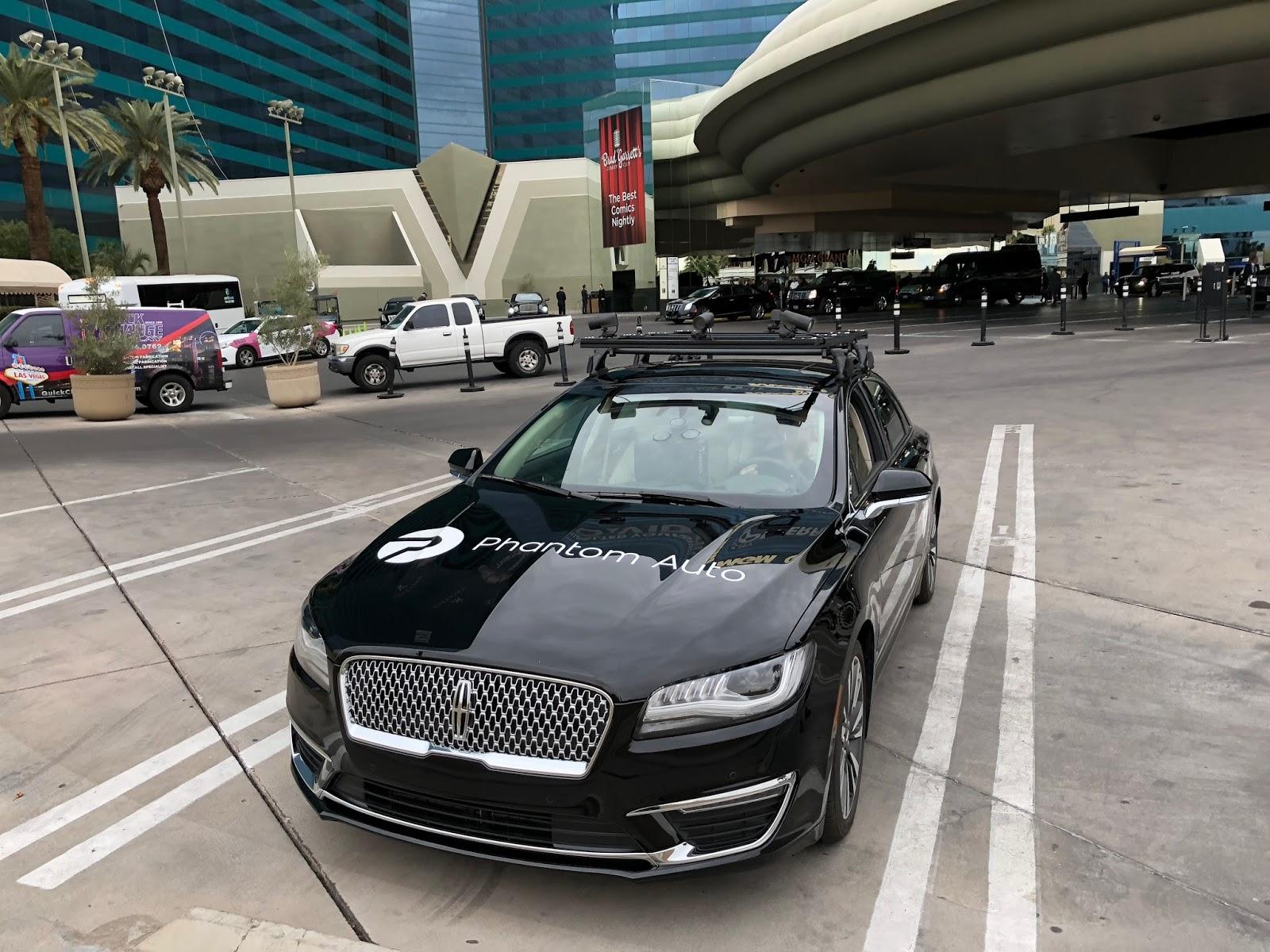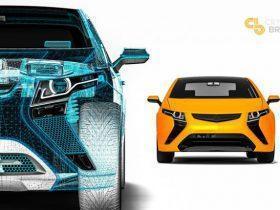By Simona Shemer,
Tel Aviv is on track to become a capital of mobility, placing Israel as a leader and trendsetter on a global scale in the automotive tech and smart transportation sector. This was a prevailing message at the sixth annual EcoMotion event in Tel Aviv on Wednesday, a one-day conference drawing some 3,000 participants from across the world, including industry leaders, investors, and entrepreneurs.
Israeli tech was also on full display as part of an exhibition with hundreds of startups showcasing the latest innovations in smart and urban mobility, autonomous and electric vehicles, cybersecurity, safety, sensor and radar tech, machine learning and artificial intelligence.
Among the attendees were delegations from some of the biggest names in the auto industry, including German auto giant Volkswagen and the Renault-Nissan-Mitsubishi Alliance, both of whom had significant announcements ahead of the event
Volkswagen inaugurated its new innovation center in Tel Aviv this week, dubbed “Konnect” and which will focus on connectivity, smart navigation, cybersecurity, e-mobility, and big data. The center, according to a company announcement, plans to support “41 local start-ups with innovative business ideas connected to the future of mobility.”

A demo vehicle by City Transformer, which seeks to change how we use transportation in urban areas. Photo by Asaf Kliger
At EcoMotion, Volkswagen Group ran a startup competition where five early-stage Israeli startups were given the opportunity to pitch in six-minute intervals to a panel of judges from the German automotive giant.
Among the competitors were Neteera Technologies, a Jerusalem-based firm developing disruptive, multi-applicational sensing technology; Deeyook, a mobile wireless location sensor; Enigmatos, providing solutions to the threat of vehicle hacking; Insight Acoustics, an optical and acoustic sensor fusion firm; and Make My Day, a route planning app for running errands.
The latter won a six-month professional mentorship at the “Gläserne Manufaktur” or Transparent Factory in Dresden, and office space in “Konnect.”
The Renault-Nissan-Mitsubishi Alliance, meanwhile, having launched Alliance Ventures in January, a $1 billion venture capital fund for “next-generation mobility,” announced this week that it was investing an undisclosed amount in an Israeli VC fund focused on car technologies, Maniv Mobility, its first investment in Israel as part of the plan, bringing the company’s total amount of funds invested globally so far to $50 million.
Alliance Ventures deputy head Matthieu De Chanville tells NoCamels at the EcoMotion conference that the firm was quite impressed by a number of Maniv’s portfolio companies, namely Phantom Auto, a company that provides remote-control safety solution for vehicles, Hailo Technologies, a deep learning platform for embedded devices, and Otonomo, an automotive data services platform for connected cars. All three exhibited at the event.
“There are many interesting startups here linked to AI, big data, computer vision,” he says, indicating that the Israeli ecosystem is quite accessible.
Alliance Ventures also announced that it was deepening its engagement in Israel with a new cooperation with the Israeli Innovation Authority. The firm already runs a Tel Aviv location and will partner with the authority to run an incubator in Kiryat Atidim for early-stage startups, particularly ones in the urban smart mobility sphere, according to Antoine Basseville, the director of the Alliance Innovation Lab in the city. Alliance Ventures also runs labs in Silicon Valley, Paris, Yokohama, and Beijing.
Israel on the mobility map
Israel is home to some 600 startups and companies in the auto tech and smart transportation sphere, and in 2017, the industry raised some $800 million in venture capital funds. This marked a significant increase from $120 million just five years ago in 2013, according to a recent report by the IVC Research Center and law firm ZAG S&W.
International auto giants, having sensed the potential of formidable tech, have already established R&D or innovation centers in Israel, including General Motors, Daimler AG, and Ford, which set up a presense here after having acquired Israeli computer vision and machine learning startup SAIPS in 2016.
Israeli companies in the industry have been leaving strong impressions for some time, starting with Better Place, despite its 2013 bankruptcy, but the event that sealed Israel’s place on the mobility map was the acquisition by Intel of Jerusalem-based vision sensor tech company Mobileye in March 2017 for over $15 billion, the largest Israeli exit to date.
And Mobileye has become a key player in the global auto industry.
In addition to developing cutting-edge driving assistance systems, Mobileye is also experimenting with self-driving vehicles on highways in Jerusalem and has plans to expand tests to California and Arizona, according to CEO and co-founder Amnon Shashua.
Mobileye is also part of a collaboration with auto heavyweight BMW, global automotive parts supplier Aptiv (formerly Delphi Automotive), and Kfar-Saba based Innoviz Technologies, which develops LiDAR (Light Detection and Ranging) remote sensing technology, to bring BMW autonomous vehicles to market.
Mobileye also recently partnered with Israel-based transit data company Moovit, which raised $50 million in a funding round led by Intel, to “improve the world’s urban mobility.”
Innoviz Technologies CEO Omer Keilaf tells NoCamels that “Mobileye is bringing a lot of business to Israel,” adding that the company is not competition for Innoviz and that he appreciates working with other Israeli firms, “What they are providing is very complementary to LiDAR.”
Other Israeli startups that made headlines in the auto ecosystem and beyond recently were Cortica, a company using AI to power autonomous platform that reportedly caught the eye of Elon Musk’s Tesla, and Argus Cyber Security, a global leader in cybersecurity solutions acquired by German car parts supplier Continent AG for over $400 million in November 2017.
Tech and vision
Chris Thomas, the founder and partner of US-based next-generation mobility venture capitalist firm Fontinalis, praised not just Israeli-developed technology at the EcoMotion event, but also Israeli vision.
“Israelis are always looking ahead,” he said, during a panel discussion on smart mobile technologies. Thomas acknowledged that Israelis may strive to model themselves after Americans in the business world, but American entrepreneurs are increasingly looking to Israelis on drive, work ethic, and “war footing,” borrowing from the military term for readiness during combat.

The EcoMotion conference welcomed 3,000 participants from all the world to the Port of Tel Aviv. Photo via Asaf Kliger
Thomas, whose firm has been a lead investor in Israeli cyber startup Karamba Security, which provides security solutions for connected and autonomous vehicles, said these Israeli traits among others are part of what would make Israeli-founded companies successful.
Greg Urban, executive director of automotive tech at UBS Investment Bank agreed, noting that whereas “Americans want to create the next Google, Facebook, Uber,” Israelis have more “practical” visions, namely what can go to market.
The talk of the town was, of course, the advent of autonomous vehicles and how it will transform the transportation industry.
“The future of autonomous vehicles is going to change the whole perception of car ownership,” Keren Wieder Fanan, global head of ventures at Israeli taxi sharing app Gett said during a panel on mobility trends.
Yoav Hollander, founder and CTO of Foretellix, a company that creates tools to find and verify bugs found in intelligent autonomous systems said that while “everything is going to be autonomous,” Israeli tech is focused on “safety and how to verify that all conditions in autonomous vehicles.”
















